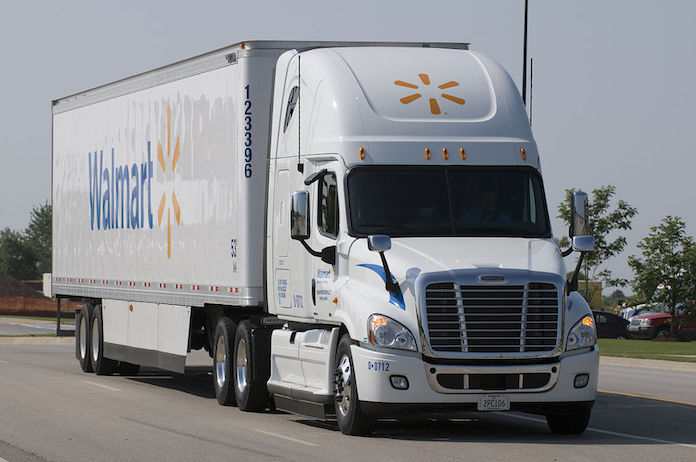Rumors that Walmart (NYSE: WMT) may be interested in acquiring a major health insurance provider — and soon-to-be home health care operator — shook up the long-term care industry last week. And at least one observer says there’s no reason why the retail giant’s reach can’t expand to the skilled nursing industry.
The Bentonville, Ark.-based retailer and Humana Inc. (NYSE: HUM) are reportedly in the early stages of talks regarding potential collaborations, according to reporting in The Wall Street Journal and Bloomberg. The details of the alliance remain murky, though Bloomberg noted that a full merger is unlikely and that the two parties are exploring “a wide range of options.”
Humana itself is in the process of acquiring a stake in Kindred at Home, the home health business of Kindred Healthcare (NYSE: KND); a final Kindred shareholder vote on that transaction, which will see a pair of private equity firms also taking slices of Kindred at Home, will wrap up this week.
So if all the unknowns fall into place, skilled nursing operators could soon wake up in a world where the nation’s largest brick-and-mortar retail chain plays an outsized role in the long-term care industry. And with Amazon (Nasdaq: AMZN) announcing plans to enter the health insurance business earlier this year, it’s clear there is interest in the space among the nation’s most prominent companies.
Brittain Ladd, a supply-chain consultant who formerly worked for Amazon and “Big Four” accounting firm Deloitte, classified Walmart and Amazon’s health care moves as the latest front in the companies’ battle to control large swaths of American consumers.
“Amazon is growing because they’re ‘the Everything Store,’” Ladd told SNN in an e-mail. “Walmart must become the Everything Store just to compete with Amazon, and then expand into areas where Amazon doesn’t compete, so Walmart can achieve a competitive advantage.”
For instance, Walmart made a concerted push during the last holiday season to promote its e-commerce website in an attempt to offset Amazon’s dominance. Expanding into the nursing home business could offer another way for the brick-and-mortar king to parry Amazon’s health care moves.
“Walmart understands the value of acquiring a nursing home provider with an impeccable reputation and expanding the operations where possible,” Ladd said.
The opportunity could become even more tempting considering the demographic shifts on the horizon, along with the retailer’s established place in the daily lives of millions of Americans — including those in small towns where the big-box store represents the center of commercial life.
Of course, entering the nursing home space isn’t a simple proposition: Operators face steep regulatory hurdles on the federal and state levels, and recent industry forces have increasingly made the nimble, mid-size operator the model du jour. But Walmart has already done the legwork that trips up many larger chains, including the establishment of a solid network of vendor partners and a vast internal logistical network.
“Health care, PBM [pharmacy benefit management], nursing home facilities and care, pharmacy, and hospitals are all businesses where having a physical presence is either required or an advantage,” Ladd said, noting that Walmart already has its own foodservice and pharmacy logistics figured out. “Walmart can leverage their stores to accelerate their ability to expand into more health-related services, including nursing homes.”
Written by Alex Spanko



